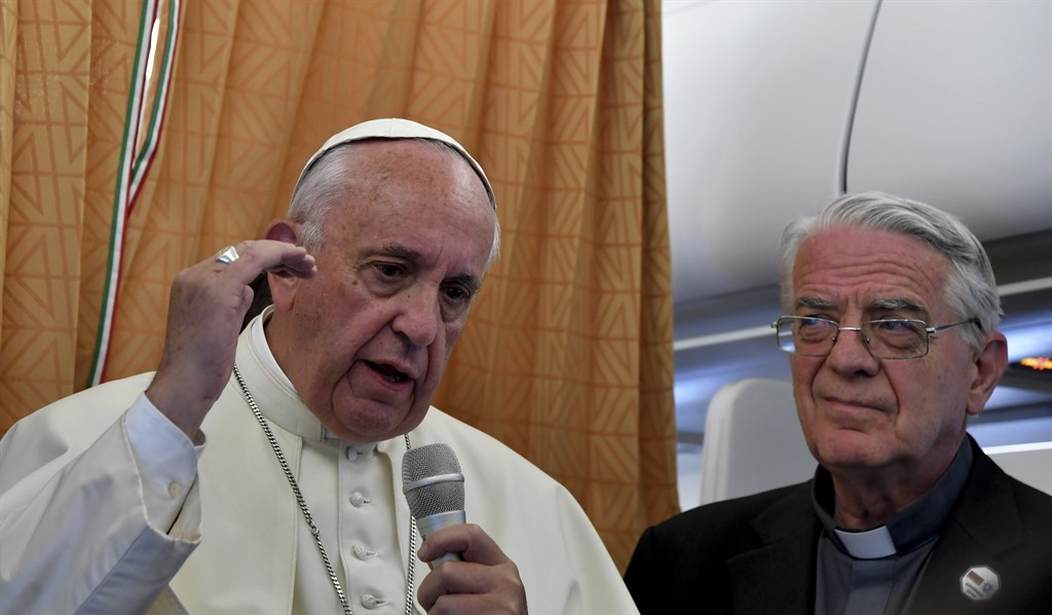While flying back to Rome from Armenia Sunday, Pope Francis addressed questions regarding respect for gay people and his recent remarks on the Armenian "genocide."
Francis spoke to reporters during an in-flight press conference, emphasizing apologies from Christians to the poor, exploited women, and child laborers. He pointed out that many great priests and holy people go unnoticed "because holiness is modest."
He quoted the Catechism of the Catholic Church in his statements on homosexuality, saying:
...that they must not be discriminated against, that they must be respected and accompanied pastorally. One can condemn, but not for theological reasons, but for reasons of political behavior...Certain manifestations are a bit too offensive for others, no? ... But these are things that have nothing to do with the problem. The problem is a person that has a condition, that has good will and who seeks God, who are we to judge?
Francis noted that there are "some cultures that have a different mentality" regarding treatment of people attracted to the same sex. While USA Today reported Francis' comments as a "groundbreaking statement," the Catholic Church's leader did not contradict its teachings that homosexual acts are sinful (not the orientation itself) and broadened his apology to women, children, and families. He referenced his childhood in Buenos Aires, 80 years ago, when a divorced family was barred from entering a Catholic home because the religion's teachings do not recognize divorce.
"The Church must ask forgiveness for not behaving many times – when I say the Church, I mean Christians!" Francis said. "The Church is holy, we are sinners!"Recommended
He also clarified his use of the term "genocide" while discussing the killing of Armenians by the Ottoman Empire:
I wanted to underscore something else, and I don’t think I err that I also said: in this genocide, as in the other two, the great international powers looked in the other direction. And this was the thing. In the Second World War some powers, which had photographed the train lines that led to Auschwitz had the possibility to bomb and didn’t do it. An example. In the context of the First War, where was the problem of the Armenians? And in the context of the Second War where was the problem of Hitler and Stalin and after Yalta of the area… and all that no one speak about. One has to underscore this. And make the historical question: why didn’t you do this, you powers?
In July, the Pope will travel to Azerbaijan and then World Youth Day in Poland.
I am happy to have visited Armenia, the first nation to accept Christianity as its religion, and I thank all for the welcome. #PopeInArmenia
— Pope Francis (@Pontifex) June 26, 2016

























Join the conversation as a VIP Member